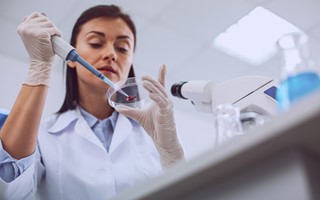News July 22, 2020 4M
New guidance for coroners was issued by the chief coroner on the 23rd September 2019. The document provides details and advice on when to allow or arrange a second post-mortem (PM) examination with the aim to reduce unnecessary delay and thus further trauma to the family of the deceased. This document supersedes the 1999 Home Office Circular No.30 and is now the go-to reference for coroners when considering instructing a second post-mortem.
Whilst intended to reduce variance in regional PM and second PM, the guidance reasserts the role of the coroner in their legally enforced right of control over the body of the deceased until the coronial responsibilities come to an end. With this in mind, it is the guidance of the chief coroner that coroners treat requests for the second PM with a high level of scrutiny to ensure that no unnecessary delay is caused in the process.
For solicitors and law enforcement this has several key areas of focus;
- More stringent periods of notice may be given by the coroner to ensure any request for further PM examination doesn’t cause further delay. [Part 3; i.53]
- Raising a request for a PM examination remains the responsibility of the defendant or suspect, and not the coroner or the police.
- Requests for a second PM examination should be in writing, setting out the reasoning for a second examination of the body. This ought to include why a review of the material obtained at the first PM may not be sufficient. [Part 3; 47]
- Coroners may exercise greater scrutiny to reasons against a request for a second PM.
- Coroners will have greater confidence ‘acceding’ to a request for a second pathologist to conduct a desktop review (reviewing scans, photographs or other material from the first PM) [Part 3; 45., Part 6; 80 & Part 4; 64]
- Due to this, it is hard to envisage whereby a second PM will be authorised in the case with an absence of a suspect. [Part 3; ii.55]
- Coroners are advised they do ‘everything in their power’ to ensure there are available a preliminary report or summary conclusions of the first PM at an early stage. This is to prevent against requests made for a second PM in the absence of a first PM report (and thus to ensure deadlines). [Part 3; ii.59]
- Requests from multiple solicitors for PM examinations (for example with respect to multiple defendant’s solicitors) will be scrutinised to ensure there are no multiple examinations at the result of these requests. It’s suggested that there is often no issue that multiple PM examinations will resolve. [Part 4; 72]
Through the new guidance, there are special mentions around the issue of road traffic collisions. These are defined as ‘highly contentious’, and a full forensic PM examination will usually only happen in cases where there is a genuine prospect of prosecution (due to careless or dangerous driving for example) and it is emphasised that the suspicion is raised as early in the investigation as possible as a key requirement.
Due to the stress on family of the deceased, when requests for a second PM rarely accede to it is advised that non-invasive examinations be used (such as CT examination). Chief Coroner suggests that requests for further examinations should be ‘examined very carefully’ (Part 5, 78).
The result that this will have on the criminal defence team is simple. Moving to a desktop review, rather than a full second physical examination, should become a priority where possible. A legal professional should work with their forensic service provider or forensic pathologist to consider whether the request for a desktop review is, in their expert opinion, sufficient. In some circumstances, they will advise that a full examination is necessary, though this will come with a list of reasons why the initial examination doesn’t answer the questions necessary and therefore provide the reasoning now required by the coroner. Working with your forensic experts in this consolatory style will ensure, ultimately, that you are saving time and using it in the most effective way when it comes to reviewing forensic evidence in a case.
To find out more about Toxicology services offered by Forensic Access fill-in our online contact form or Tel: 01235 774870 to speak with our team.


